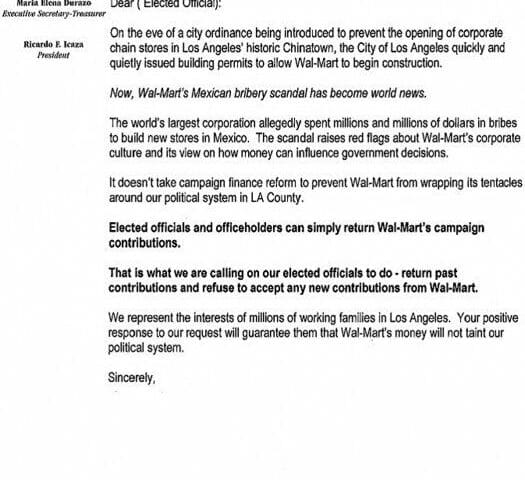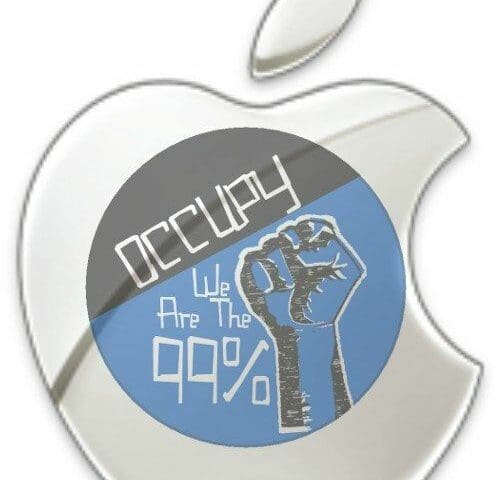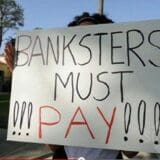

[caption id="attachment_8972" align="aligncenter" width="432"] Cassidy Noblett[/caption]
Cassidy Noblett[/caption]



(The following action alert comes from ClimatePlan.org; news of the alert first appeared at Housing California, which lists 18 Los Angeles County projects that could be affected by the transfer of housing construction funds.)
Senate President pro Tem Darrell Steinberg is considering using unencumbered housing funds from former redevelopment agencies to balance the 2012-13 state budget. Such a sweep would impact at least 175 pipeline developments poised to create 23,455 construction-phase jobs in the next two years.
In recent comments to the Sacramento Bee, Steinberg raised the possibility of abandoning his SB 654, which would preserve the low-mod balances for their original intended use. A survey indicates this move would threaten construction of at least 10,215 homes that were counting on the availability of redevelopment funding to move forward.
Key Assembly members recognize the value of the jobs and taxes generated by home construction,
» Read more about: State Housing Construction Funds in Jeopardy »



This week the Los Angeles County Federation of Labor sent letters to every elected official in L.A. County (including Congress members), urging them to return all campaign contributions they may have received from Walmart – and to refuse future donations from the retail giant. The letter, which is signed by a broad spectrum of union leaders, juxtaposes Walmart’s alleged bribery scheme in Mexico with L.A. City Hall’s quick approval of the corporation’s permits for a new store in Chinatown. (The letter’s text appears below.)
“It doesn’t take campaign finance reform,” the signatories say, “to prevent Walmart from wrapping its tentacles around our political system in L.A. County.”

» Read more about: Labor to Electeds: Return Walmart Money! »


 (The following post first appeared May 1 on Truthdig.)
(The following post first appeared May 1 on Truthdig.)
By Bill Boyarsky
By chance, the revelation of how Apple evades millions of dollars in taxes broke three days before May Day, when workers of the world traditionally protest such injustice.
Although the Apple practices aren’t illegal, the dodging of taxes on revenue generated, to a large extent, by low-wage Chinese workers, was a perfect introduction to this year’s May 1 observance, highlighted by the Occupy movement’s call for strikes and demonstrations around the country. The goal: Protest corporate domination of an economy being pulled downward by growing income inequality and intractable unemployment.
The New York Times reported that the technology company has used loopholes to reduce its tax bills in 21 states and overseas by billions of dollars annually by creating subsidiaries in places with low-tax or no-tax policies.
» Read more about: Organizing for Change: Different Drummers, Common Cause »


The SEC is dragging its feet implementing a section of the Dodd-Frank reform that would require publicly traded companies to calculate the ratio between the CEO’s pay and that of the firm’s median pay package. The New York Times editorial board urges them to push forward.
Corporate lobbyists say it’s too complicated to figure out the math. They figured out how to create uber-complex financial products that untangled the global economy, but aren’t able to divide the CEO’s earnings (they must know) by the median employee pay?
Of course, the real reason they oppose the law is that they don’t want to add fire to the public debate about excessive CEO salaries – certainly while the rest of America struggles to pay bills, put kids through college and afford mortgage payments. Obscurity, not transparency, benefits the privileged.
Their opposition to useful information for investors and consumers is a replay of earlier legislative battles.
» Read more about: Why Can’t CEOs Do the Math on Their Pay? »


“About 100 Occupy protesters,” reports the Pasadena Star News, “seeking to reverse an eviction gathered Tuesday outside the Pasadena house of a Bank of America executive in the San Rafael neighborhood.” The newspaper said the home belonged to Raul Anaya, a B of A executive. The following LA Progressive post, by Occupy Fights Foreclosures member Cheryl Aichele, was written just prior to the action, which was designed to bring attention to the dire predicament of Dirma Rodriguez and other foreclosed homeowners.
By Cheryl Aichele
On Friday, David Redy — a partner at Redy & Smith— called Dirma Rodriguez, a widowed mother with a severely disabled daughter and four sons, who says she was fraudulently foreclosed upon by Bank of America. Allegedly during the conversation, Redy — who represents the bank— threatened Carlos Marroquin,
» Read more about: Bank of America Foreclosure Backlash in Pasadena »


 I am just a girl who can’t say “no.” In my youth this was actually a fun quality, but now it means that I spend a lot of time manning concession booths, volunteering in Sunday school classrooms, and doing whatever else the local Uber Mom has tasked me with. But make no mistake, I am not the Uber Mom. The Uber Mom is the mom who is always in charge. She knows everyone, runs every volunteer effort, and cooks absolutely everything from scratch.
I am just a girl who can’t say “no.” In my youth this was actually a fun quality, but now it means that I spend a lot of time manning concession booths, volunteering in Sunday school classrooms, and doing whatever else the local Uber Mom has tasked me with. But make no mistake, I am not the Uber Mom. The Uber Mom is the mom who is always in charge. She knows everyone, runs every volunteer effort, and cooks absolutely everything from scratch.
One thing I have noticed about these moms, whose astounding accomplishments are both impressive and deeply annoying (homemade marshmallows? really?), is that they are not dispersed evenly through society. This became particularly apparent to me when my own children moved from a private and rather expensive pre-school to a public school in LAUSD. Overnight we went (as my husband likes to point out) from being young,


 (The following announcement has previously appeared on other Web sites, including LA Progressive.)
(The following announcement has previously appeared on other Web sites, including LA Progressive.)
Practically everyone has an opinion about Obama’s health care, but few understand it, according to the latest Associated Press poll. The future of the president’s Affordable Care Act lies in the hands of the Supreme Court, which is expected to make a decision on the Act’s constitutionality in June. Meanwhile 40 million people are without health insurance.
A free public conference – Health Care: Where Are We Now? — will address the health-care debate:
Saturday, May 12, from 9 a.m.-12:30 p.m.
at Pasadena City College, Harbeson Hall
1570 E. Colorado Blvd., Pasadena
A coalition of community based organizations in Southern California led by the League of Women Voters Pasadena and Health Care for All – San Gabriel Valley is sponsoring the conference.
Other organizations include Physicians for a National Health Program,
» Read more about: Health Care Debate: A Free Public Conference »



There they go again. The Heartland Institute, which The New York Times rather generously describes as a “libertarian organization,” recently felt compelled to yank a line of billboards comparing believers in climate change to mass murderers and dictators. “I Still Believe in Global Warming. Do You?” asked one billboard featuring a picture of Unabomber Ted Kaczynski. More boards had been planned for Chicago, in a run-up to the institute’s Seventh International Conference on Climate Change, a kind of Coachella for climate-change deniers. Those ads showed photos of Charles Manson, Fidel Castro and Osama bin Laden.
Apparently even some of Heartland’s fellow climate-change deniers began feeling a little queasy over the campaign and so the Windy City-based group killed its plan. Not with any remorse, however. Institute president Joseph Bast released this statement:
“We know that our billboard angered and disappointed many of Heartland’s friends and supporters .
» Read more about: Climate-Change Denier Group Is Feeling the Heat »



By Rebecca Band
(This post first appeared May 7 on the Labor’s Edge blog site.)
One BILLION Dollars. That’s how much California gives away every year to big corporations, thanks to a wasteful tax loophole that actually incentivizes companies to close up shop in California and move those jobs elsewhere.
According to L.A. Times columnist George Skelton:
You might think a tax law that rewards companies for killing California jobs and resurrecting them in another state would be dumped. Very quickly. Especially if it also rewards them for selling off property here and rebuilding elsewhere. Or, put another way, if the law provides a tax incentive not to hire or invest in California in the first place. You’d repeal it. A no-brainer.
Makes no sense, except for the companies using the loophole while profiting from selling their products here in the nation’s largest consumer market.
» Read more about: State's Corporate Tax Breaks: Loopholes or Black Holes? »